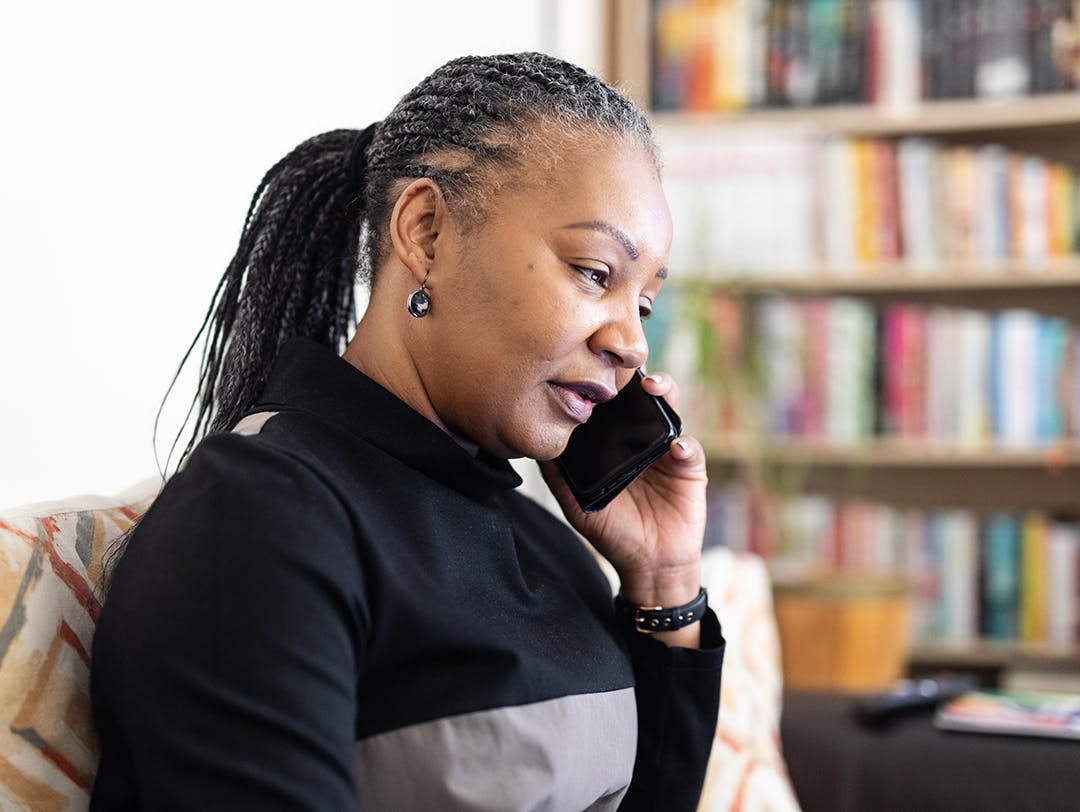MOVING FORWARD ON YOUR HIV JOURNEY
There’s no right or wrong way to respond to an HIV diagnosis.
Everyone processes it in their own way. It can spark a whole range of emotions: shock, fear, anger, sadness, shame and everything in between, but it’s important that you don’t feel like you’re alone.
There are lots of people out there who understand how you may be feeling. There are also a lot of resources available to support you now and throughout your HIV journey. As you find more information and make connections that work for you, things should begin to make more sense.
So, take your time but remember, you don’t need to know everything straight away. Living with HIV is a journey and with the support of experts, peers, advocates, community members and more, you can learn a lot along the way.
Here are some tips to getting started on your HIV journey from people who have been there themselves, including those who received their HIV diagnosis later in life.
DEALING WITH YOUR DIAGNOSIS
Everybody deals with their HIV diagnosis differently and there’s no such thing as the right way to do it. However, there are some things that can help you get through this initial stage of your HIV journey.
Here are some top tips on dealing with your diagnosis from people living with HIV.
Sharing HIV diagnosis stories
Hearing about how other people got through this stage of their HIV journey can help you feel less alone and more positive moving forward. These stories are from people who are now proudly living happy and healthy lives with HIV.
How Robert moved from denial to strength
An HIV diagnosis may come as a shock, or it may have been something that you suspected for a while. Hear how Robert was diagnosed as living with HIV in his early thirties, following the break-up of a long-term relationship.
HIV diagnosis: Finding your best strategy
Receiving the news that you’re living with HIV can be difficult to process. It's normal to feel negatively about your diagnosis but try to counter it by reminding yourself that HIV isn’t what it used to be.
Today, there are many treatment options, resources and support systems available that can help you live long, healthy, and happy lives with HIV.4
Developing a positive strategy for managing your HIV can really help. Here are a few tips from people within the HIV community:
NP-GBL-HVU-WCNT-210087 | March 2022
UNDETECTABLE = UNTRANSMITTABLE (U=U)
The first goal of HIV treatment is to make your viral load undetectable, meaning your viral load is so low that it can’t be detected by the tests used to measure it.4
When you have an undetectable viral load, the virus becomes "untransmittable”. This means, with effective treatment, you can’t pass HIV on to your sexual partners.4
U=U is an empowering message that helps a lot of people feel more confident about their condition.
A breakthrough for people living with HIV
If you are living with HIV and maintain undetectable levels of the virus, there is great news. HIV can’t be passed on to your sexual partners.3
In 2019, the findings of the PARTNER study proved that when a person living with HIV is on effective medication with an undetectable viral load, they cannot pass on HIV to their sexual partners.2,3,5
Data from the Positive Perspectives study highlighted the importance of this happy fact. For example, people living with HIV who are told about U=U by their healthcare providers are more likely to be satisfied with their treatment, take their medication as prescribed and have better health and wellbeing.6
Hear Bruce talk about the importance of sharing the message of U=U.
The science behind U=U
Scientific studies show that people living with HIV can live healthy, full lives, without fear of passing on HIV.3
The landmark PARTNER study looked at over 112,000 instances of sex without a condom, where one partner was HIV positive, and one was HIV negative. When the HIV positive partner was on an effective treatment – reducing their viral load to ‘undetectable’ levels – there were zero cases of HIV transmission.2,3,5
Key findings from Positive Perspectives
To help support people living with HIV to live long, happy, healthy lives, it’s important to understand the challenges people face post HIV diagnosis , and how they impact their quality of life.
Positive Perspectives is a global study that shines light on the experiences and aspirations of 2,389 people living with HIV aged 18-84 from 25 countries. It investigates how people living with HIV rate their health, how HIV impacts their lives and how it affects their outlook for the future.6
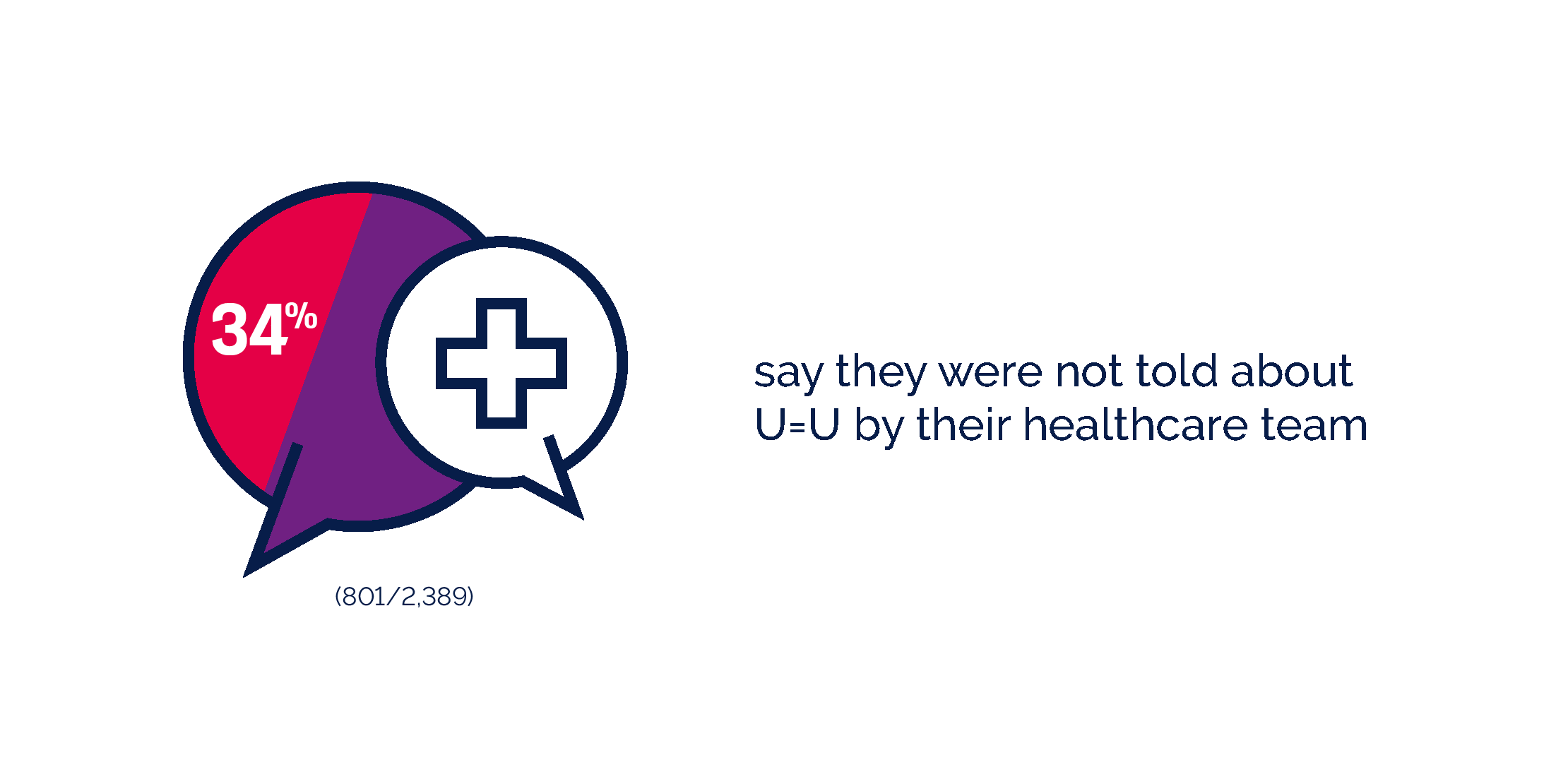
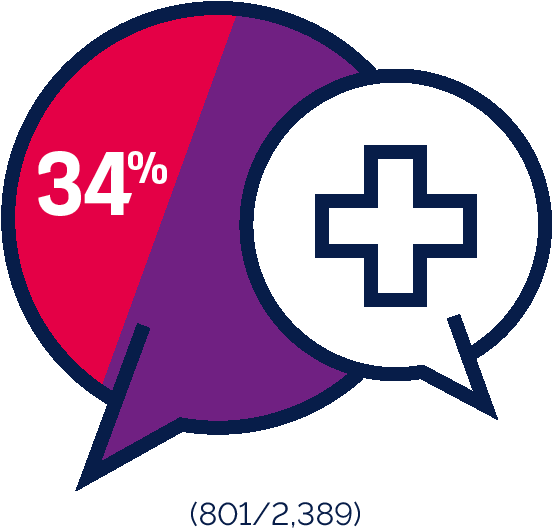
The impact of U=U
There are physical, mental and social benefits to talking to your doctor about U=U. People living with HIV who said they were told about U=U by their healthcare team, had better health than those who hadn’t.7 They were also more satisfied with their treatment and a higher percentage reported virologic control:7
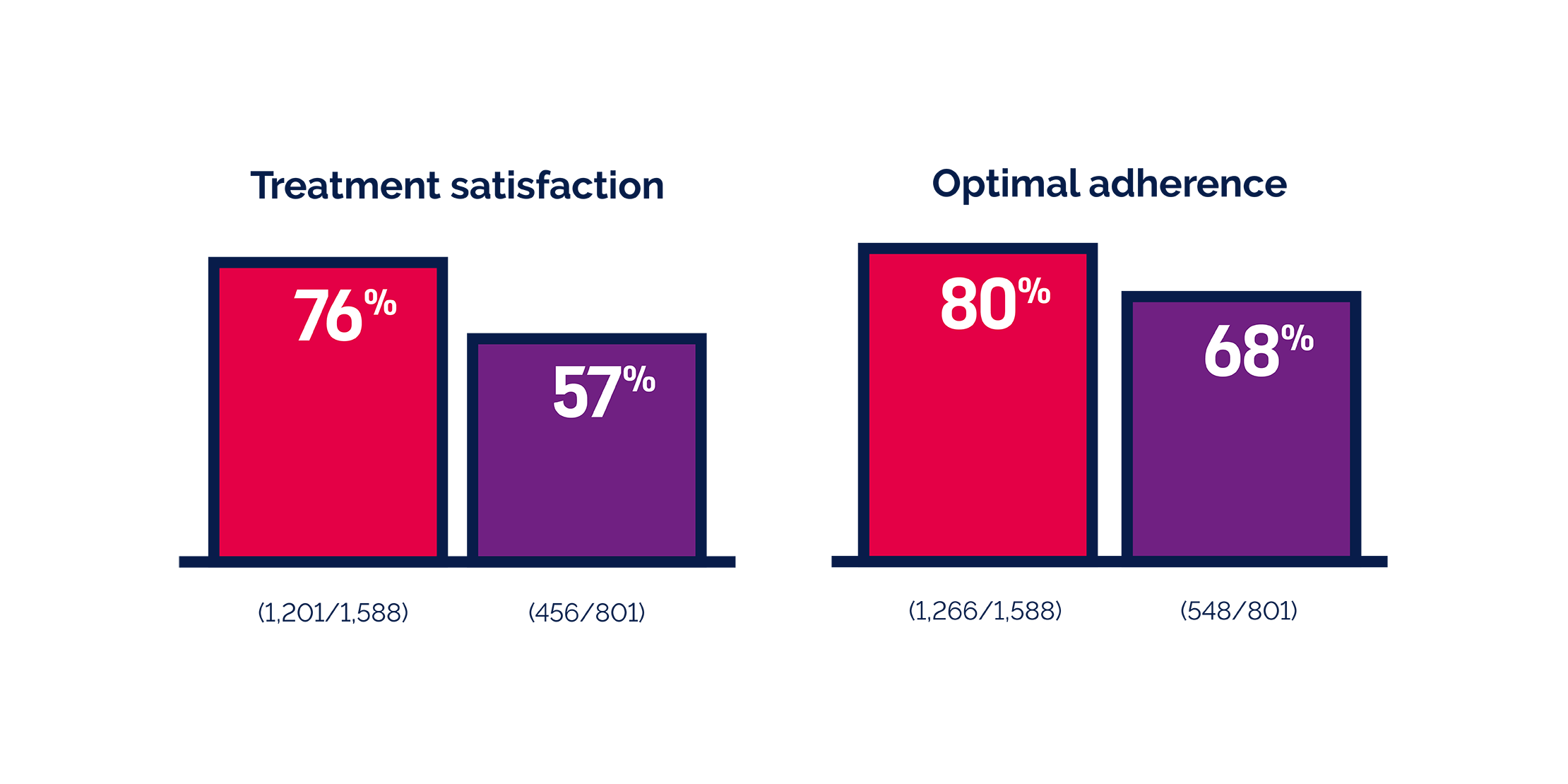
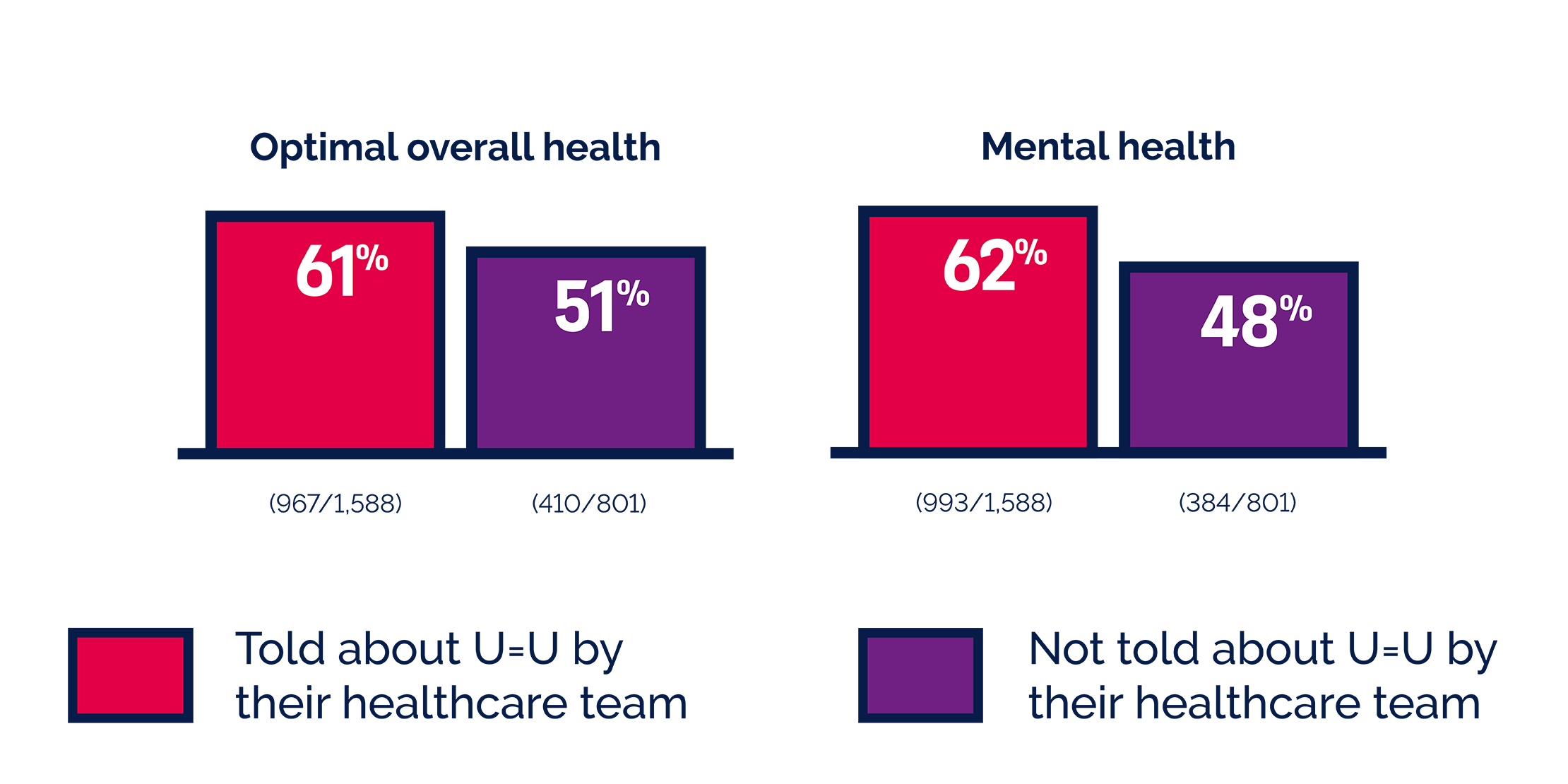
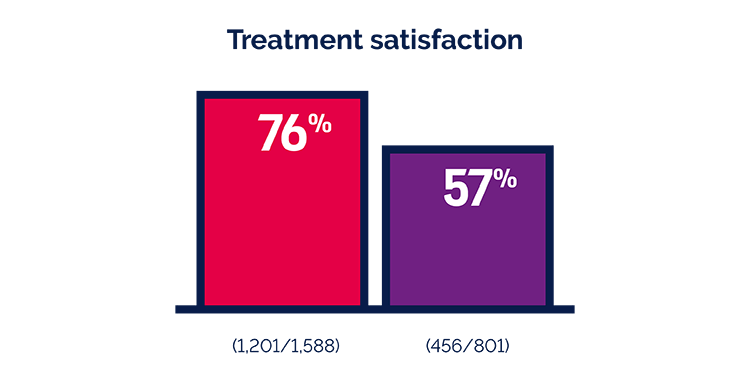
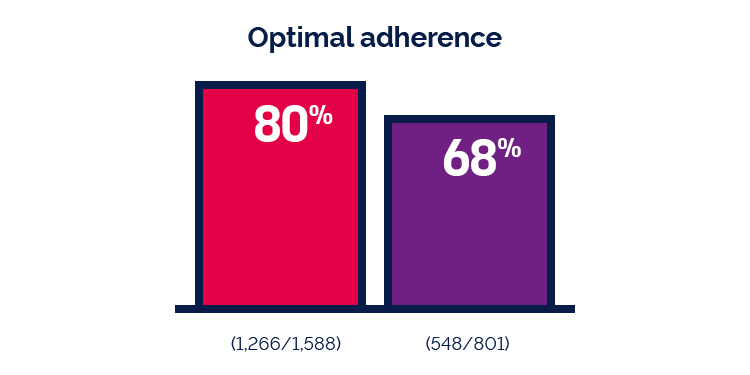
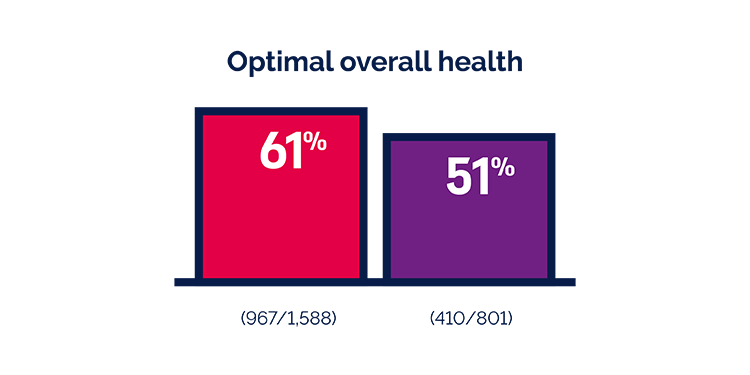
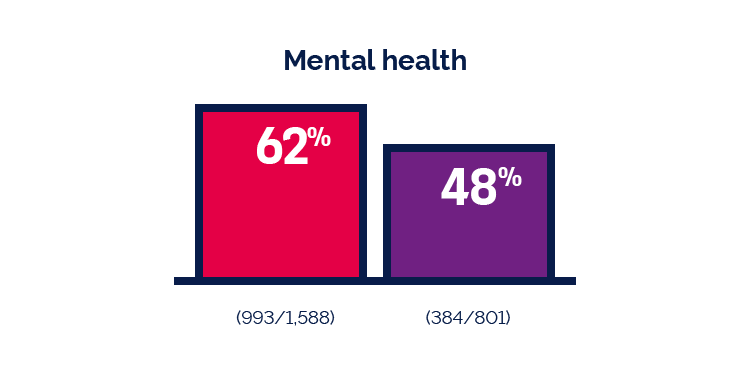


Helping you to stay on track
U=U can help you with adherence too. Knowing that an undetectable viral load can be reached helps and motivates many people living with HIV to stick to their treatment plan:7
BECOMING UNDETECTABLE
Becoming undetectable is an empowering experience for many people living with HIV that helps them feel more in control of their condition and life. Hearing what U=U meant for others can help inspire you on your own HIV journey
Tom’s story
When Tom learnt he was undetectable it boosted his self-esteem and confidence, bringing a positive change to his relationship with his partner. Hear his story about how U=U changed how he saw his HIV and himself.
Robert’s story
Hear Robert talk openly about his poor health and low self-esteem whilst living with untreated HIV and learn how becoming undetectable has made him feel more confident in life and love.
Angelina’s story
Angelina shares how, once her HIV became undetectable, she felt more comfortable talking about her diagnosis. She also gives some insight into what being undetectable can mean for those looking to start a family.
NP-GBL-HVU-WCNT-210083 | March 2022


WHAT'S NEXT?
Understanding the different types of HIV medications available to you can make it easier to talk to your doctor about your treatment options.
There was a time when HIV care focused solely on suppressing the virus. As HIV care has evolved, ensuring a good quality of life for people living with HIV is now just as important as effective HIV treatment and care.
Working together with your healthcare team to understand what's going on within your body may be the best way to get the most from your HIV care.
- Life expectancy for people with HIV. Available at: https://www.aidsmap.com/about-hiv/life-expectancy-people-living-hiv [Accessed September 2021].
- Rodger AJ, et al. JAMA. 2016;316:171–181.
- NAM AIDSMAP. What does undetectable = untransmittable (U=U) mean?. Available at: https://www.aidsmap.com/about-hiv/what-does-undetectable-untransmittable-uu-mean [Accessed September 2021].
- National Health Service. Treatment – HIV and AIDS. Available at: https://www.nhs.uk/conditions/hiv-and-aids/treatment/ [Accessed: September 2021].
- Rodger AJ, et al. Lancet. 2019;393:2428–2438.
- Global Positive Perspectives Study, Wave 2: Understanding the Unmet Needs of People Living with HIV. Available at: https://viivhealthcare.com/en-gb/our-stories/partnerships-key-populations/global-positive-perspectives-study-2-people-living-with-HIV/. [Accessed September 2021].
- Okoli C, et al. Poster presented at the 23rd International AIDS Conference; 2020; July 6–10. Poster PED 0773.
NP-GBL-HVU-WCNT-210088 | March 2022
Title
Word Type
Sub Heading
definitionTitle
Word Type
Sub Heading
definitionIf you get any side effects, talk to your doctor, pharmacist or nurse. This includes any possible side effects not listed in the package leaflet. You can also report side effects directly via the Yellow Card Scheme at www.mhra.gov.uk/yellowcard or search for MHRA Yellowcard in the Google Play or Apple App store. By reporting side effects, you can help provide more information on the safety of this medicine.
If you are from outside the UK, you can report adverse events to GSK/ViiV by selecting your region and market, here.


